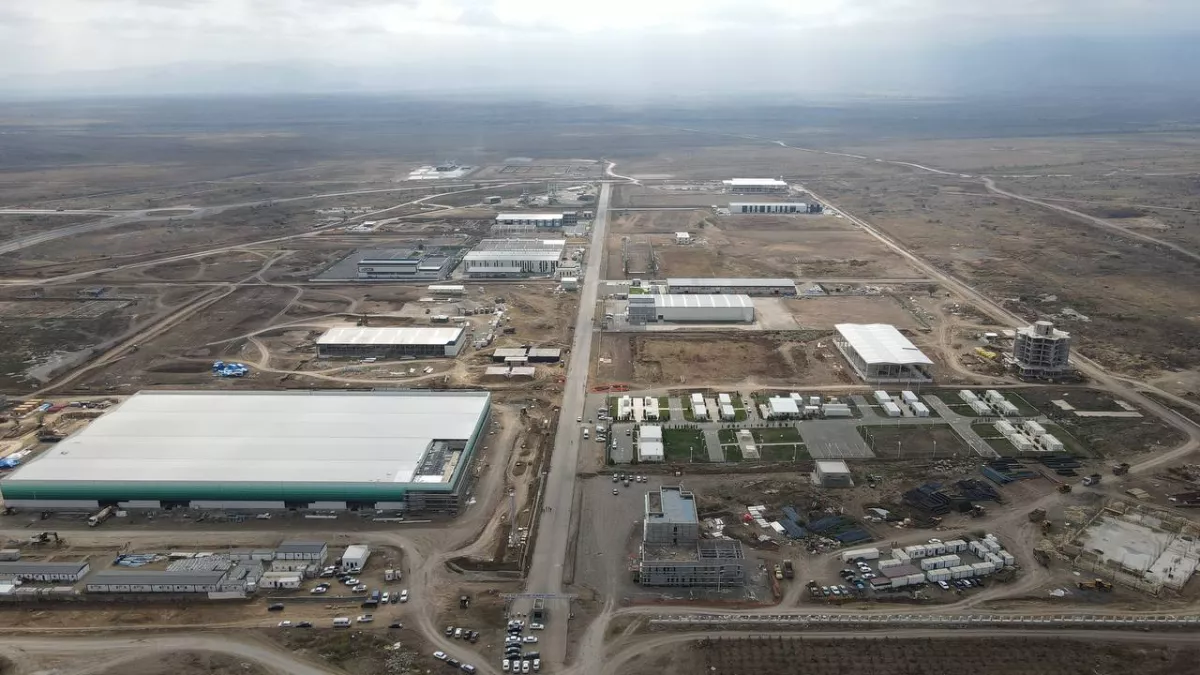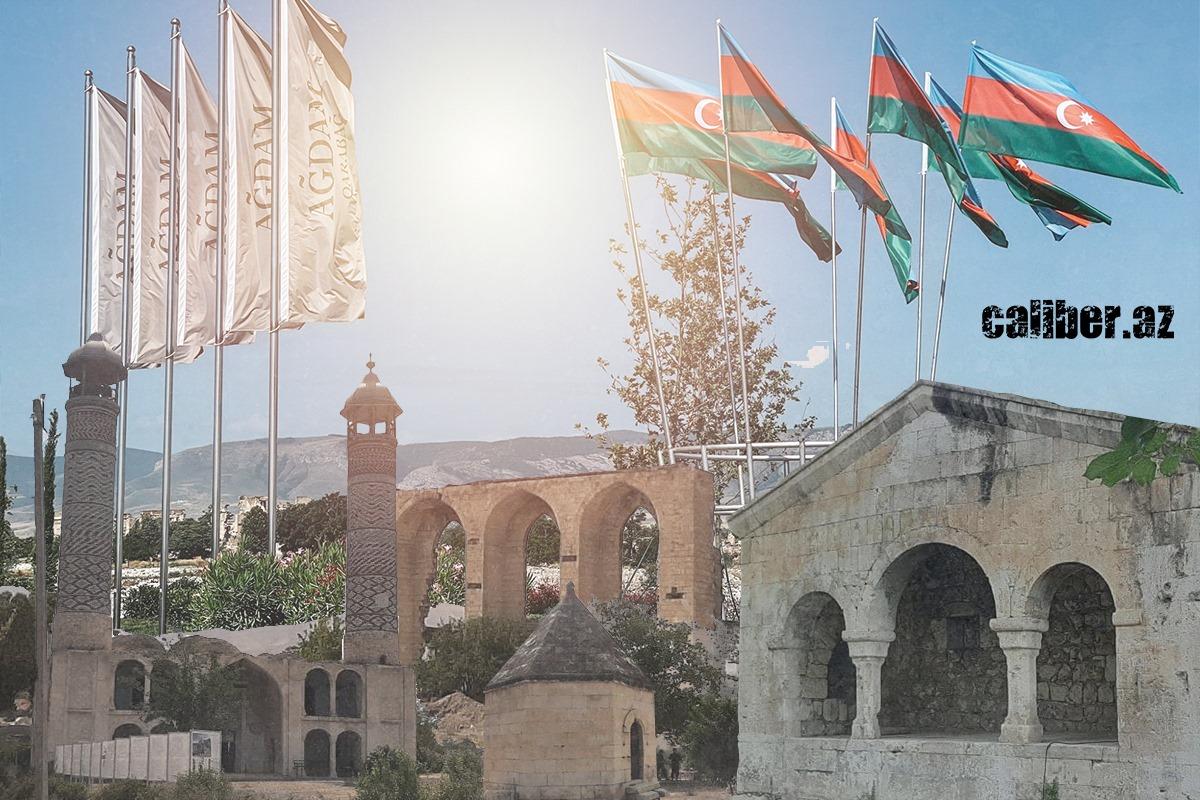Aghdam: From war-torn wasteland to thriving industrial powerhouse Transformation into a leading export hub
In recent years, Azerbaijan's industrial landscape has been bolstered by the development of powerful agro-industrial zones in the Karabakh and East Zangezur economic regions. These areas have introduced a system of financial and fiscal incentives, leading to the rapid establishment of manufacturing and service-logistics enterprises with significant export potential.
Today, much of this industrial activity is concentrated in the Aghdam Industrial Park, which has already attracted nearly 100 million manats ($58.8 million) in investments. The achievements and future development prospects of the Agdam industrial zone were highlighted during a media tour organized by the Agency for Development of Economic Zones (ADEZ).
Over three and a half years ago, work began on a 190-hectare site near the administrative centre of the Aghdam district to create the largest industrial zone in western Azerbaijan. The key objectives of establishing the industrial park included the restoration of territories liberated from occupation, the development of industrial potential, and, most importantly, ensuring employment for the population resettling in these liberated areas.
Over the past few years, large-scale work has been carried out at the site of the future Aghdam Industrial Park under the guidance of the Ministry of Economy’s structural unit, ADEZ. This work included the construction of energy, utilities, transportation infrastructure, as well as communication and internet systems. As a result, entrepreneurs are provided with ready-to-use infrastructure funded by the state, enabling them to implement their business projects on a "Plug and Play" basis.
Notably, the development of this industrial cluster was conducted with the maximum use of public-private partnership mechanisms. Thanks to this, and the favourable business climate, the construction of industrial, processing, and other enterprises has been quickly established. A significant advantage is the Aghdam industrial zone’s strategic location near major road and rail hubs, greatly simplifying the transportation of raw materials for processing and the export of finished products. All these factors combined have made the Aghdam Industrial Park an attractive destination for both local and international business communities. Today, approximately 65% of the park’s territory is reserved by residents. Moreover, in terms of the number of registered residents, the Aghdam cluster ranks second in the country, after Azerbaijan’s largest Sumgayit Chemical Industrial Park (SCIP).
"Currently, 97 million manats [$57 million] have been invested in the Aghdam Industrial Park, and 380 jobs have been created here," said Elchin Kazimov, spokesperson for ADEZ, during the media tour. "The park has granted resident status to 29 business entities, with a total investment estimated at 271 million manats [$159 million]. Additionally, four entrepreneurs have been granted non-resident status." In the near future, as more than thirty industrial enterprises begin operations, a total of 2,400 new jobs are expected to be created.

According to ADEZ data, there are currently nine operating enterprises in the Aghdam Industrial Park producing electrical distribution equipment, electrical outlets, and concrete substations; roofing and facade materials; ventilation and fire safety equipment, as well as various metal products; automation and telemechanics systems, porous building blocks, wallpapers, and various types of footwear.
"It is encouraging to note that products manufactured in the Agdam Industrial Park are widely used in construction works taking place in the liberated territories, as well as being extensively sold in the domestic market. Success has also been achieved in the export sector—supplies of wallpapers produced in the park have been established to Georgia, and negotiations are ongoing for sales to CIS countries, Türkiye, Iraq, and others," emphasized Kazimov.

Meanwhile, negotiations are underway with European countries for the export of specialized footwear used by construction workers, production of which has been established in the Aghdam industrial cluster since April of last year. All equipment for the factory was supplied by the German brand Desma, and the park's resident has already received a certificate allowing the export of products to European countries. Thus, the factories built in the Aghdam Industrial Park are demonstrating remarkable results in export strategy, simultaneously expanding into both domestic and international markets.
"[In the Karabakh region] Two industrial parks are already operating. Notice that the products of the industrial park created in the city of Aghdam are now exported abroad. The city was destroyed, but industrial enterprises are already operating here and exporting products abroad," said Azerbaijani President Ilham Aliyev in a recent interview with local television channels.
It seems that in the near future, the number of entrepreneurs intending to invest in the Aghdam Industrial Park, as well as in the developing industrial-logistics cluster in the Jabrayil District— the Araz Valley Economic Zone — will increase dynamically. This is not surprising, given that industrial park residents in the liberated territories are granted significant tax incentives. For instance, they are exempt from profit, property, and land taxes for 10 years starting from the registration date. In turn, the state assumes responsibility for creating the necessary infrastructure, including the provision of electricity, natural gas, drinking and technical water, as well as high-speed internet.
At the same time, entrepreneurs in the liberated territories are given special benefits: subsidies for social insurance payments, exemption from VAT and customs duties on the import of machinery, technological equipment, installations, raw materials, and components used in production, along with other additional incentives. Entrepreneurs are also eligible for financial assistance of 20% of the payments made for utility services (electricity, natural gas, water supply, and sewage). This assistance is provided to producers of various products registered in the region who are not considered high-risk taxpayers.
Moreover, in the Karabakh region, residents have access to preferential loans to increase entrepreneurs’ access to finance, along with state-backed guarantees and credit subsidies.
Thanks to VAT and customs duty exemptions on imports, residents of industrial parks under ADEZ’s management have saved over 501 million manats ($295 million), including 40.68 million manats ($24 million) in the first 11 months of 2024 alone.








